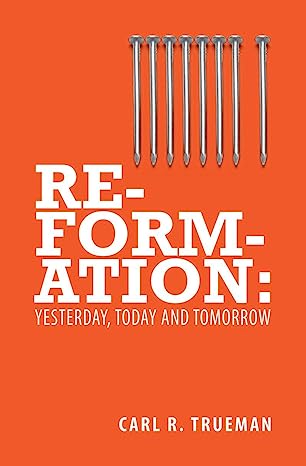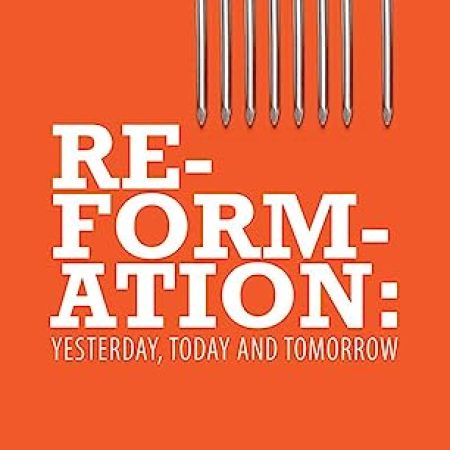
There is no question that Carl Trueman is an exceptionally gifted writer and this little book ably displays three aspects of that gift in particular. First, he is able to concisely and cogently cover a great deal of ground and yet do so in a way that gives the read a real knowledge of his subject and insight into it. Secondly, and even more importantly, in my view, is his ability to make penetrating observations about present day situations and weaknesses within the Christian scene and then speak into them by applying biblical and historical lessons and principles. Third is his non-partisan spirit, as he graciously levels criticisms at `friend’ and `foe’ alike.
In the first of his four chapters, Trueman takes us back to the 16th and 17th centuries, setting the events surrounding the Reformation in their historical and spiritual context. This is not dry and arid history but a vital reminder of the real nature of and reasons for those events that still have a profound influence on the church and on the world today. The author shows how the Reformation was, above all else, not primarily an attempt to change ecclesiastical structures but “to place God as he has revealed himself in Christ at the centre of the church’s life and thought” and therein, according to Trueman, lies the usefulness and relevance of Reformation theology to us today.
In each of the next three chapters, Trueman focuses on a different aspect of Reformation theology and how we need to `revisit’ it and apply it to today’s situation. He begins with the church’s emphasis on the person and work of Christ and shows how, in particular, Luther’s “theology of the cross” is at variance with the present popular, triumphalist, “theology of glory which sideline and downplay suffering. Says Trueman, “The Christian expectations centre on the cross and involve an acceptance, if not the willing embrace, of the suffering, weakness and marginalisation which inevitably come to those who follow in the footsteps of the Master. He elaborates how this emphasis needs to be redressed, especially in the life of the church and not least in preaching.
Trueman’s second focus is on the Scripture. The Reformation was, he writes, “above all a movement of the Word – incarnate in Christ and written down in the Scriptures.” He calls for a high view of the Bible and of the preaching and teaching of the Bible and has helpful and apposite things to say about the responsibilities, task and the training and preparation of ministers.
Thirdly, Trueman turns his sights on the subject of assurance. This was the chapter I had to take more time to work through to make sure I followed his arguments, but it is a vitally important issue for these days. Trueman clearly shows how the subject of assurance is inextricably linked to one of the core issues of the Reformation, that of justification by faith alone. He warns against the “legalists” and the “emotional highfliers who both err by “placing their emphasis ultimately on their own experiences whereas the Reformers followed the biblical teaching that assurance “arose from the perception that God was both trustworthy and that his promise to save was, in an important sense, unconditional.” The need today is to return to a preaching that is centred on God, places biblical history high on the agenda and which culminates in Christ.
There are at least two editorial errors in the book, one of which makes a large paragraph almost unintelligible, and it is to be hoped that the Publishers will remedy these in any subsequent edition. The church today, `reformed’, `evangelical’ or whatever other labels it claims, needs to hear and act on what Trueman lays out in this excellent and highly commended book.
Christian Focus; Reprint edition (20 May 2011) Review written in 2011
